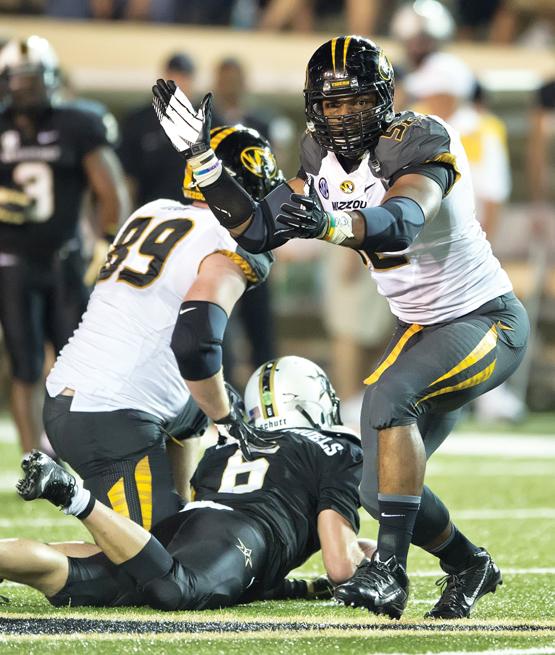Column: Sam’s announcement provides NFL with rebranding opportunity
February 20, 2014
It’s almost poetic that one of the first openly gay professional athlete will soon play in the NFL.
Each day, it seems the Internet explodes with a new scandal involving NFL athletes, whether it’s the feud over race and masculinity between Richie Incognito and Jonathan Martin of the Miami Dolphins or Philadelphia Eagle Riley Cooper drunkenly spouting off racial epithets at a Kenny Chesney concert.
What former Missouri Tiger Michael Sam’s recent announcement of his sexual preferences, a fact already well known by his college teammates, represents for the NFL is a chance for some level of redemption. In fact, in many ways, it’s already begun.
Just yesterday, Sporting News published an article detailing how Sam has not only fielded calls from journalists over the past few weeks, but also from advertising agencies hoping to capitalize on the gay, lesbian and bisexual market.
Note that these calls aren’t coming from small, obscure brands. Although the article didn’t disclose who has approached Sam, experts speculate that Red Bull, a brand that has a history of non-traditional sports advertising, and Nike, who has already endorsed openly-gay WNBA player Brittney Griner, could be potential suitors for the highly regarded defensive tackle.
Clearly, Sam is in line for a pretty big payday from his future employer and from endorsements. But how does the NFL factor in here?
If you haven’t noticed, the league is keenly aware of its audience. It’s a matter of business: Adapt or die. This is exactly what the NFL did as its popularity among women has grown over the past few years.
Since 2010, it has been reported that women make up 45 percent of NFL fans, a figure that’s quite large considering football’s reputation as a sport played by men for a male audience. Considering that women drive 70 to 80 percent of consumer spending, the NFL was certainly open to the idea of catering to a market that was previously underserved in terms of gender-specific apparel and merchandise.
While I don’t think the NFL will need to tailor merchandise and apparel for an LGBTQ audience, I do think Sam’s revelation will force the league to rethink its brand. Fans of the NFL obviously existed among members of the LGBTQ communities before it became the future employer of an openly gay professional athlete, but Michael Sam is now a historical figure in the gay rights movement, no different than Jackie Robinson, the first black baseball player, whose ascendancy into Major League Baseball represented a major step in the civil rights movement.
Of course, comparing the plight of Robinson to Sam might be considered dubious at best. If NFL players treated Sam similarly to how Robinson was treated by his opponents in the 1950s, they’d be placed in jail. But the MLB’s embrace of Robinson’s legacy, as evidenced by Jackie Robinson Day, as well as the league-wide retiring of his No. 42 jersey, should certainly provide hope for Sam’s proponents.
In order to appeal to this potential audience, the NFL could shift away from its image of a masculine, gladiator sport for men and instead focus on how it’s the one sport that unites Americans. High school and college football is a tradition in so many towns across the country. What the league needs to emphasize is that it’s a sport that’s embedded in our identity.
Now, I’m not trying to claim that the positive PR and new marketing opportunities Sam will bring to the NFL absolve the league of its institutional problems. Devastating injuries and locker-room disputes — such as the one between Incognito and Martin that appalled fans because of its shocking details — must be addressed on a case-by-case basis.
It does, however, provide the league with an opportunity to improve its own image and promote acceptance of the LGBTQ community nationwide.
Write to Patrick at [email protected].



